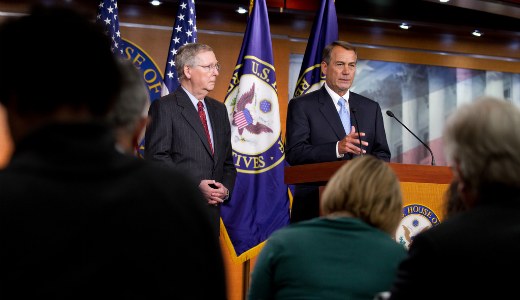
The budget proposal now before the U.S. House of Representatives would set in motion “very worrisome” structural changes, resulting in “harsh cuts” in social programs for years to come, Deborah Weinstein, executive director of the Coalition on Human Needs said in an interview.
With the Congressional budget process heading towards a showdown, the coalition launched a national “SAVE for All” campaign in February that has drawn more than 1,200 organizational endorsements so far and released a hard-hitting report blasting the Republican-dominated House of Representatives budget proposals.
In recent weeks, the SAVE for All (Strengthening America’s Values and Economy for All) campaign has organized numerous visits to congressional and senatorial offices to express “our concerns about these truly grave threats to low and moderate-income people,” Weinstein said.
The visits have included representatives of national organizations as well as local groups participating by phone conference from their congressperson or senator’s home district and state.
Meanwhile, Move On, through its vast online network is calling for public gatherings across the nation next Tuesday in front of places hit hardest by the proposed Republican budget cuts, such as schools, fire stations, libraries and parks. Anyone can host or join a “Defend the Dream” event by clicking here.
Of particular concern, Weinstein said, “is the idea of a constitutional amendment” to balance the federal budget and other structural changes that “make it relatively easy to cut taxes and very hard to fund services” on which millions depend.
The new Coalition on Human Needs report, “A Better Budget for All,” notes that states, forced by their balanced budget requirements, have laid off hundreds of thousands of workers during this economic crisis.
However, the federal government, because it has so far been free of annual balanced budget constraints, has been able to channel funds into the states hard hit by the recession to sustain programs like unemployment insurance, food stamps and Medicaid and forestall far worse lay offs.
The House plan sets a “dangerous precedent” by rejecting revenue increases that would reduce the federal deficit and debt while proposing “the largest [single-year] cuts in domestic appropriations in history,” the report continues.
The authors cite the findings of the Center on Budget and Policy Priorities that reveal the economic downturn, the Bush tax cuts and the wars in Afghanistan and Iraq together account for “virtually the entire deficit” for the next 10 years.
Instead of concentrating on slashing domestic appropriations, the authors argue that at least half the deficit reduction should come from “equitable revenue increases,” including the closing of corporate tax loopholes and increased taxes on “those who can most afford to pay.”
The authors note that a comparison of the president’s budget plan for fiscal year 2012 and that of the Republican-dominated House for the last seven months of FY 2011 offers “a glimpse at two vastly divergent visions of our country and the role of government.”
While criticizing the president’s budget plan for also engaging in cuts to some social programs, albeit far less drastic than the Republican ones, the authors “applaud the president’s proposals to increase revenues.”
They single out the President’s proposals that impose fees on those “responsible for the financial crisis,” taxing hedge fund managers’ earnings as ordinary income and not at the lower capital gains rate, drawing more revenues from corporations that operate internationally, and ending tax breaks for the oil and gas industries.
Describing the administration’s plan as “less one-sided,” the report says the president’s deficit reduction proposals call for a cut in tax breaks for corporations and the rich and limiting military spending.
“Ultimately,” the report concludes, “the biggest deficit reduction measure is an expanding economy, with more people working and paying taxes.”
The authors argue for “strategic investments that will spur job creation” as key to deficit reduction and economic rebound from the Great Recession.
Image: John Boehner, Republican Speaker of the House, along with Senate Republican Leader Mitch McConnell, demand budget cuts. Courtesy House Speaker’s office.

MOST POPULAR TODAY

Zionist organizations leading campaign to stop ceasefire resolutions in D.C. area


High Court essentially bans demonstrations, freedom of assembly in Deep South

Afghanistan’s socialist years: The promising future killed off by U.S. imperialism

Communist Karol Cariola elected president of Chile’s legislature





Comments